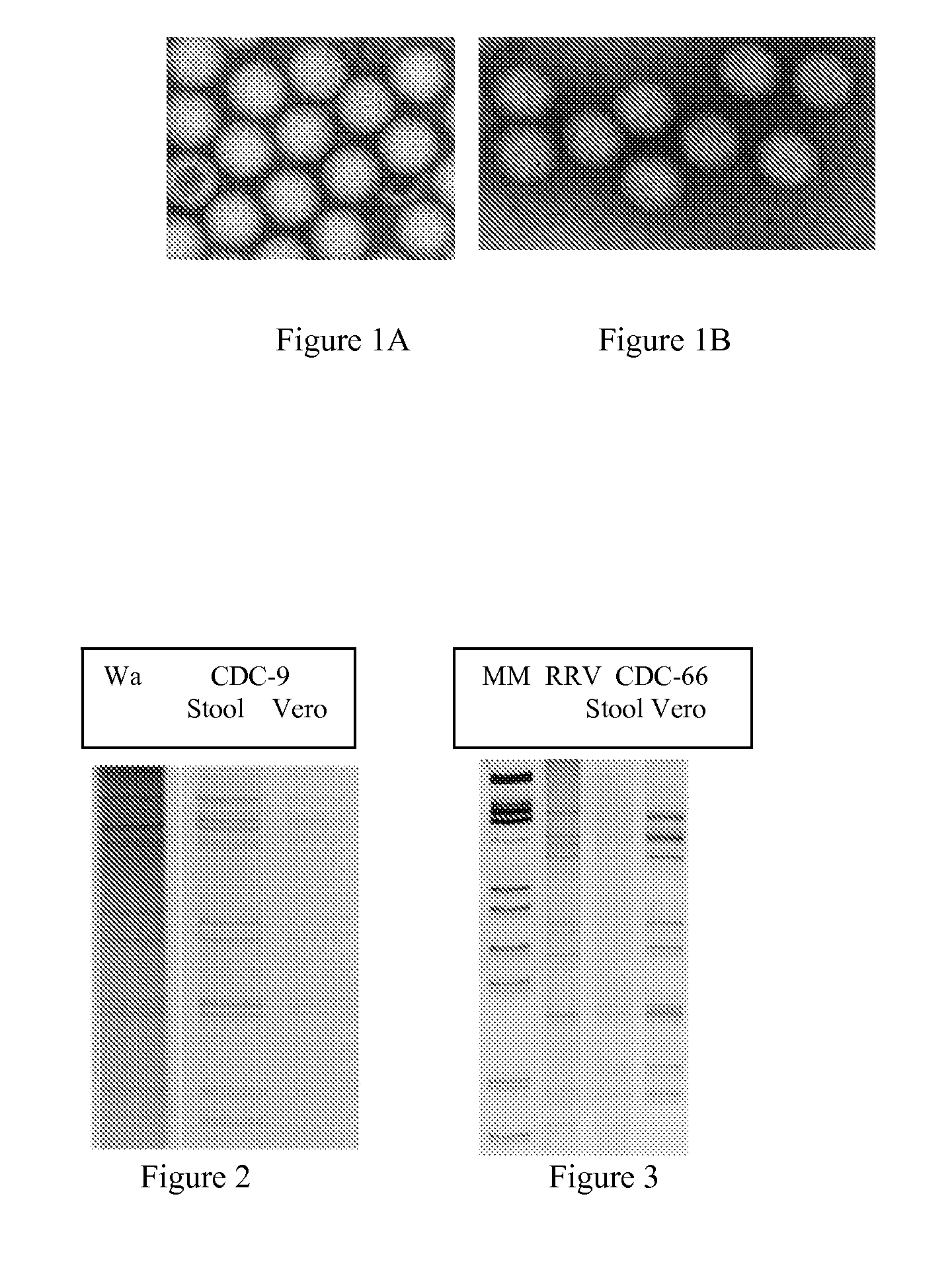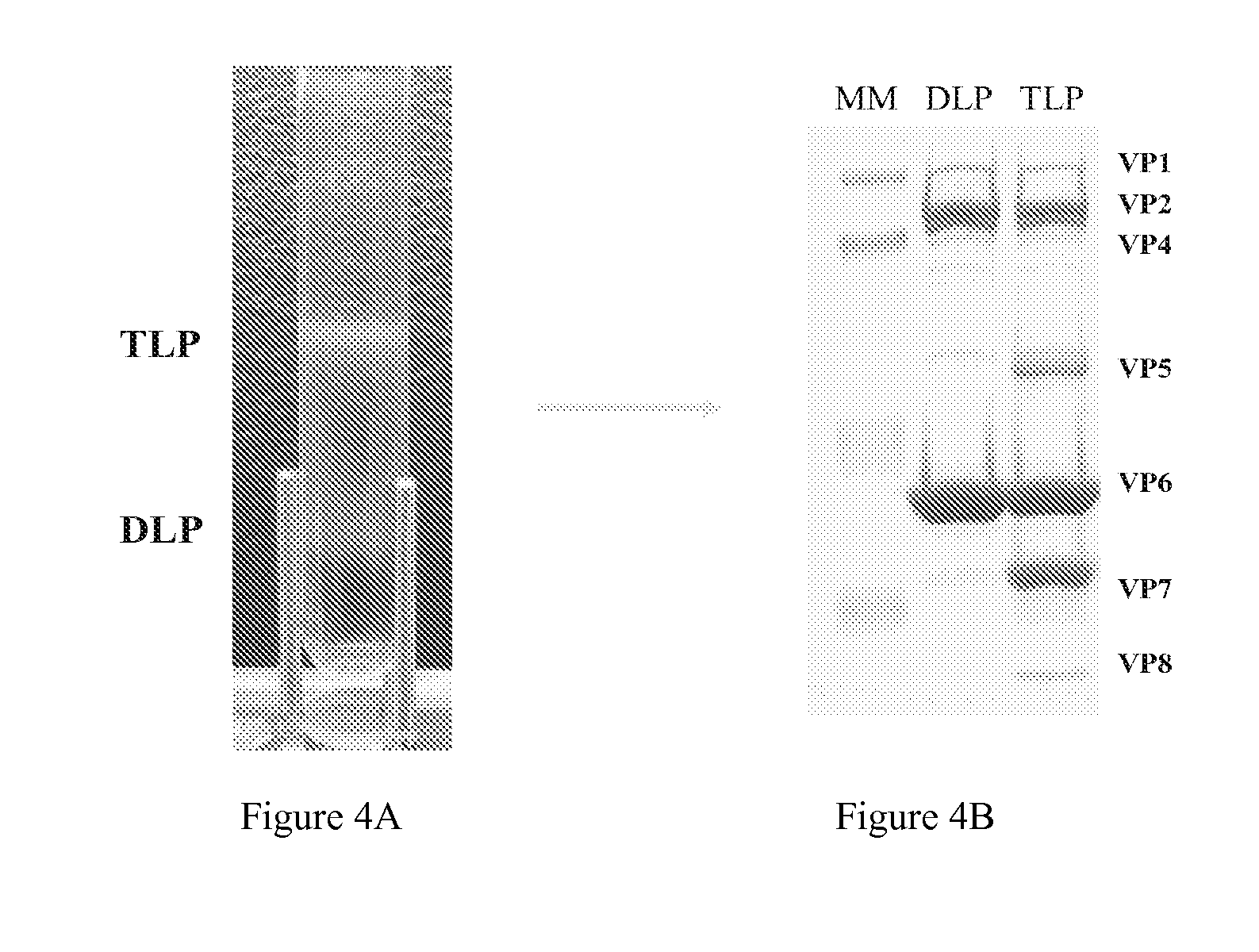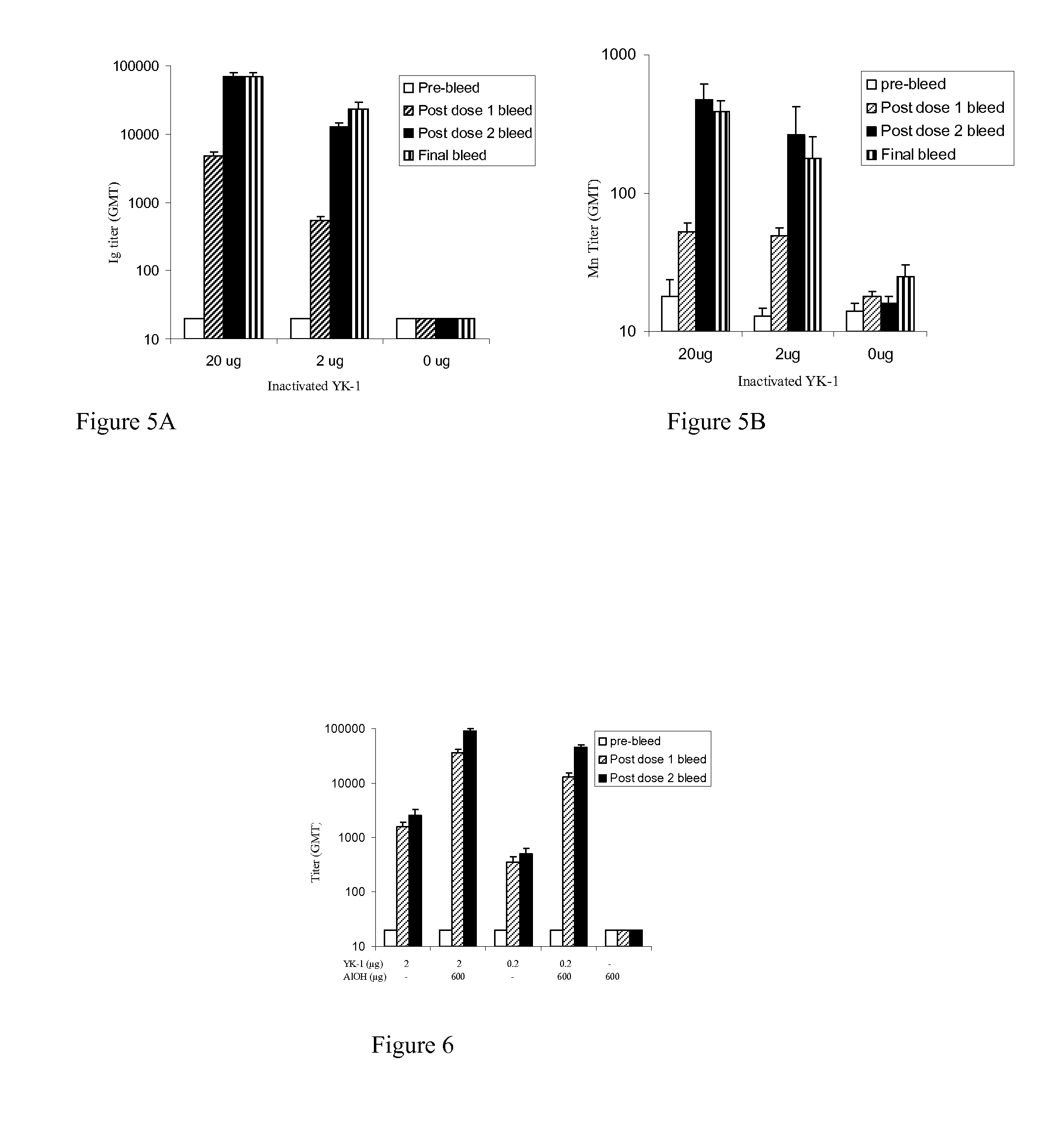New human rotavirus vaccine strains and diagnostics
a human rotavirus and vaccine technology, applied in the field of virus vaccine strains, can solve the problems of preventative intervention, inability to tolerate vomiting, dehydration and shock, and the number of deaths associated
- Summary
- Abstract
- Description
- Claims
- Application Information
AI Technical Summary
Benefits of technology
Problems solved by technology
Method used
Image
Examples
example 1
Adaptation and Passaging
[0176]One ml of a 10% virus suspension in DMEM is supplemented with neomycin in a 1.7 ml sterile low bind tube, mixed well and then centrifuged for 10 min at 3,000 rpm in an Eppendorf microcentrifuge. The supernatant is transferred to a new tube and centrifuged for 10 min at 10,000 rpm (8,000×g). The clarified supernatant is sterilized by passing though a 0.45 micron pore filter. The supernatant is tested by EIA (Rotaclone; Meridian Biosciences) and if OD value is >1.0, store it at 4° C. before use for infection. Stool extraction and Rotaclone testing can be done the day before infection.
[0177]The culture medium is removed from cell monolayers in individual roller tubes. Each roller tube is washed with 2 ml of maintenance medium, then 2 ml maintenance medium is added to each tube and incubated at 37° C. in a rolling apparatus until virus inoculum is ready.
[0178]An aliquot of 0.5 ml of supernatant is transferred to a sterile tube and 1 microliter of CaCl2 stoc...
example 2
Production and Purification of Rotavirus Strains
[0183]Production of rotavirus is accomplished by use of large scale production roller bottles. Briefly described, Vero cells are cultured in Dulbecco's Modified Eagle Medium supplemented with 5% fetal bovine serum (Invitrogen Corp., Grand Island, N.Y.) and 50 micrograms / milliliter of neomycin (Sigma Corp., St. Louis, Mo.). Confluent monolayers of Vero cells in roller bottles are infected with a particular rotavirus strain at a multiplicity of infection of 0.1.
[0184]Rotavirus obtained by large scale production is purified according to standard operating procedures. Briefly described, rotavirus is harvested from infected cultures of Vero cells at four days post-infection. Triple-layered rotavirus particles are purified from supernatants by centrifugation through 40% sucrose cushions in TNC buffer for 2 hours at 106,750×g using an SW32Ti rotor and then through isopycnic centrifugations in CsCl gradients for 17 hours at 111,160 g using an ...
example 3
Immunogenicity of Inactivated Rotavirus (IRV)
[0187]Immunogenicity of rotavirus strains is tested in a mouse model. Purified killed rotavirus particles are administered intramuscularly to mice without an adjuvant. Animals are immunized with amounts of killed rotavirus protein in the range between 2 and 20 micrograms.
[0188]Immunogenicity is assayed by measuring immunoglobulin titers including IgM, IgA and IgG in blood samples obtained at various times after administration. Neutralizing antibody titers are measured by microneutralization assay as described in detail in Jiang, B., Vaccine, 17:1005-1013, 1999, the contents of which are incorporated herein by reference. Briefly described, mouse sera are serially diluted two-fold in duplicate wells and incubated with trypsin-inactivated RRV rotavirus. Activated rotavirus or similarly treated serum-free MEM medium is incubated in the absence of mouse serum and serve as positive and negative controls, respectively. MA104 cells in MEM medium ...
PUM
| Property | Measurement | Unit |
|---|---|---|
| Mass | aaaaa | aaaaa |
| Mass | aaaaa | aaaaa |
| Mass | aaaaa | aaaaa |
Abstract
Description
Claims
Application Information
 Login to View More
Login to View More - R&D
- Intellectual Property
- Life Sciences
- Materials
- Tech Scout
- Unparalleled Data Quality
- Higher Quality Content
- 60% Fewer Hallucinations
Browse by: Latest US Patents, China's latest patents, Technical Efficacy Thesaurus, Application Domain, Technology Topic, Popular Technical Reports.
© 2025 PatSnap. All rights reserved.Legal|Privacy policy|Modern Slavery Act Transparency Statement|Sitemap|About US| Contact US: help@patsnap.com



